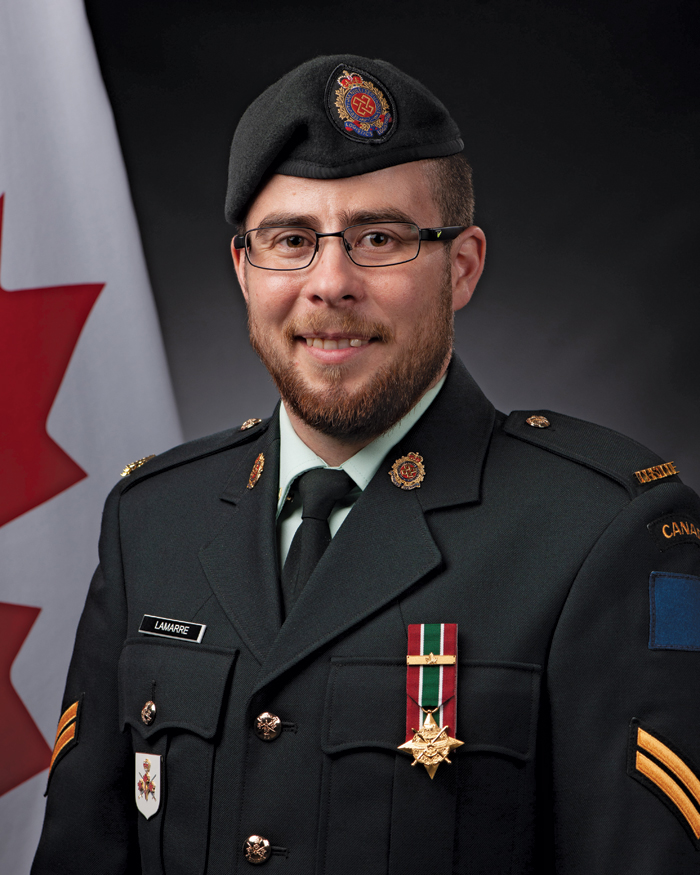Transgender Day of Remembrance – Nov. 20 Continue the steps toward inclusiveness
By Lookout on Nov 07, 2021 with Comments 0
Defence Team Pride Advisory Group
––
Transgender Day of Remembrance is an annual observance on Nov. 20 that honours the memory of the transgender people whose lives were lost in acts of anti-transgender violence. It was started in 1999 by transgender advocate Gwendolyn Ann Smith as a vigil to honour the memory of Rita Hester, a transgender woman who was killed in 1998. The vigil commemorated all the transgender people lost to violence since Rita Hester’s death, and began an important tradition that has become the annual Transgender Day of Remembrance.
Despite recent political victories, increased transgender representation in the media, and promotion of new policies that protect transgender rights, transgender people still face disproportionate rates of discrimination compared to other communities.
In the Canadian Armed Forces, the Defence Team Pride Advisory Organization is encouraging employees to join the day of remembrance and embrace inclusivity at work and in the community at large, and help end discrimination and violence towards this marginalized group.
“Transgender Day of Remembrance is key to shifting public opinion on transgender people in the Forces,” says Cpl Vincent-Gabriel Lamarre, a transgendered military member. “On Nov. 20, let’s talk about how we can create an accepting work environment for trans people and acknowledge the injustices they have faced. Show your solidarity and be open minded for the occasion.”
Understanding Transgender
Cpl Lamarre began a gender transition a few years ago with the support of his family and military hierarchy. It is crucial to understand the difference between sex and gender, explains Cpl Lamarre. Sex refers to the biological elements of a person, while gender refers to the social construct of femininity and masculinity in a specified culture and time period. Understanding this distinction is crucial so as to not limit gender to just reproductive organs.
Moreover, it is important to use the correct terms such as “gender confirmation surgery” or “gender transition” rather than “sex change,” because some trans people decide to keep their reproductive organs.
People need to respect trans people’s pronouns and gender identity, even when the individual is not immediately present in a conversation.
“Being a trans person means living in a world where physical appearance and gender expression are continuously judged and analyzed. People will label you based on what they see and this can be really harmful to some people. French itself is a very binary language, meaning there are masculine or feminine words, and it makes it harder to be inclusive. Some non-binary people turn to English as a result because it is easier to be inclusive,” says Cpl Lamarre.
Micro-aggressions impact trans people significantly. They are are forms of prejudice experienced in either verbal communication or through subtle physical gestures. They are often done subconsciously and between people of various ethnicities, cultures, beliefs, or genders. Even though there is usually no malicious intent behind these gestures and comments, they remain negative and antagonizing. Micro-aggressions can also make those who face them feel rejected and can potentially cause mental health issues.
“False compliments are in fact micro-aggressions. For example: ‘you look like a real woman/man’ or even ‘you’re pretty/good looking for a trans person.’ Your respect towards trans people should never be linked to their conformity or their adherence to society’s norms.
Cpl Lamarre suggests some concrete actions that can be added to social interactions.
“You must adapt your vocabulary to respect a trans person, such as using feminine or masculine grammar and using their correct name. Avoid anything that could possibly remind them of their former self, who they do not identify as anymore. Don’t worry about getting things perfect, we all make mistakes. If the intention is good, the trans person will understand that it takes some time to adapt.”
Are you unsure of which pronouns to use? Just ask, and then use those pronouns from that point on and encourage others to do the same. Do not guess a trans person’s gender based on their appearance. Transgender and non-binary people may not have the appearance and physical characteristics that we typically assume of them. In fact, several trans and non-binary people live their lives without everyone around them knowing how they identify.
“Keep in mind that trans-identity does not have to be linked to a medical transition: some people only transition socially by changing their name, pronouns, and clothes, and not medically by taking hormones or having operations. Trans identity and acceptance does not depend on how much they have transitioned or how far they have gone medically, socially, or legally with their transition,” says Cpl Lamarre.
Cpl Lamarre regularly holds conferences on his gender-transition process with educational groups and organizations dedicated to improving knowledge about the LGBTQ+ community. Through his conferences, he stresses the importance of mental health and physical wellbeing for all the members of the Defence Team.
If you have any questions or want to get involved with the Defence Team Pride Advisory Organization, get in touch at LGBTQ2DTPNNational-LGBTQ2REFDNationale@forces.gc.ca.
––––
Filed Under: Top Stories
About the Author:






